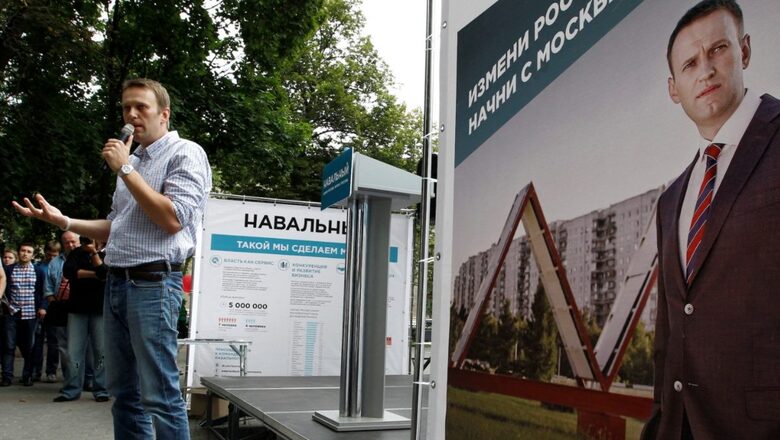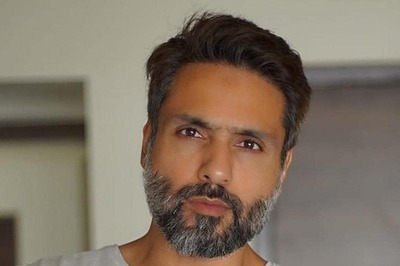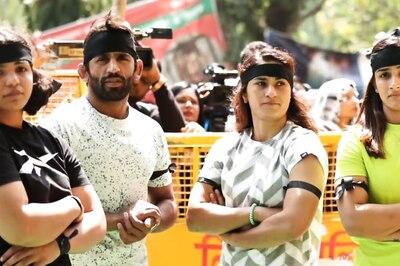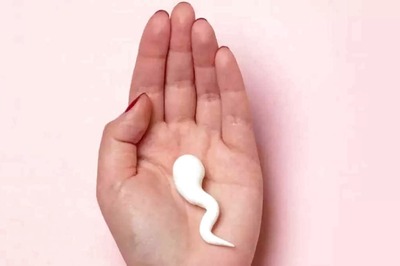
views
Alexei Navalny was Russia’s best-known critic at home and abroad and his sudden death last week under mysterious circumstances has dented the idea of forming an opposition to Russian President Vladimir Putin. Putin’s other critics and Navalny’s widow Yulia Navalnaya claim that he was behind the death of Navalny and the underlying aim was to send a message that any resistance to Putin is futile.
Navalny crusaded against alleged official corruption and staged massive anti-Kremlin protests. His claim to fame was that he developed a ‘smart voting’ strategy where he urged people to vote for candidates who were best placed to defeat candidates from Putin’s United Russia party.
Navalny, a Muscovite, was born in 1974 and grew up as the Soviet rule collapsed and saw Russia open itself to the world. He completed his graduation from the RUDN university, where he majored in law. He earned a degree in economics in 2001 and began working as a lawyer.
He gained notoriety between 2004 – 2008 for claiming that Russian public sector officials were corrupt and major state-backed corporations like the gas giant Gazprom and oil behemoth Rosneft were indulging in corruption. He also launched a website in 2004 to protest the overdevelopment in the Moscow urban area.
Activism Against Corruption
Navalny gained support in Russia through his activism against corruption as Russians frustrated with corruption during the Soviet era wanted a more cleaner, transparent government. He launched RosPil in 2010, an anti-corruption project run by a team of lawyers that analyses spending of state agencies and companies, exposing violations and contesting them in court.
The next year, in 2011, he launched the Foundation for Fighting Corruption, which would later become his team’s main platform for exposing alleged graft among Russia’s top political ranks.
Elections and Career as a Politician
Navalny stunned the Kremlin when he announced he would run for mayor in Moscow in 2013. The Kremlin, facing accusations of rigging from the international community post elections and President Vladimir Putin’s reelection and inauguration in 2012, even encouraged Navalny to contest the polls.
He was already facing embezzlement charges in the Kirovles and Yves Rocher cases, filed against him and his brother in 2012, but despite what his supporters claim to be police harassment and hostile media coverage Navalny won 27% of the votes polled, he finishes second in the mayor’s race behind Sergei Sobyanin – the Putin-backed incumbent and Moscow’s current mayor.
Legal Woes
In July 2012, Russia’s Investigative Committee charged Navalny with embezzlement involving Kirovles, a state-owned timber company, alleging that he engaged in corruption while acting as an adviser to the local governor.
The authorities launched another probe in December 2012 into alleged embezzlement at a Navalny-linked Russian subsidiary of Yves Rocher, a French cosmetic company.
Navalny rejected the charges as politically motivated.
In July 2013, a court convicts Navalny of embezzlement in the Kirovles case, but he received a suspended sentence.
In February 2014, Navalny was placed under house arrest in connection with the Yves Rocher case.
Finally, in December 2014, Navalny and his brother were found guilty of fraud in the Yves Rocher case, with Navalny receiving a suspended sentence and his brother a prison term.
Despite his confinement, his blog continued to highlight alleged corruption by Russian officials.
What Angered Putin
Russian President Vladimir Putin’s enmity with Navalny developed over a decade. Navalny’s protest marches in 2012 following Putin’s reelection and inauguration which saw massive protests in Moscow was a challenge to Putin and the Kremlin.
Putin was also angered because Navalny released three videos in three different years, targeting Russia’s then-Prosecutor General Yury Chaika in 2015, a YouTube documentary accusing then-Prime Minister Dmitry Medvedev of corruption in 2017 and in 2021, a documentary titled Putin’s Palace where he accused Putin of engaging in corruption and constructing an opulent property for himself with illicit funds of $1.3 billion from members of his inner circle in the popular Russian holiday town of Gelendzhik, on the Black Sea coastline.
Attempts on His Life and Exile
In 2017, unidentified assailants threw a green disinfectant in Navalny’s face, damaging his right eye, an attack he blamed on the Kremlin.
Then, in 2018, Navalny developed Smart Voting, an online tool encouraging Russians to support reform-minded candidates in elections, posing a threat to Putin’s United Russia party.
Research by Russian scholars Mikhail Turchenko and Grigorii Golosov showed Smart Voting significantly boosted voter turnout, opposition votes, and attention to Russian elections. These efforts may have provoked an alleged assassination attempt by Russia’s FSB in 2020.
Navalny fell ill and the plane made an emergency landing in nearby Omsk. He was hospitalised and was in a coma; Navalny’s team suspected he was poisoned as he was seeking to deploy the Smart Voting strategy during regional elections in September and touring Siberia as part of the effort.
On August 22, 2020, Navalny, in a coma, was transported to a hospital in Berlin. Two days later, German authorities confirmed he was poisoned with a Soviet-era nerve agent. Upon recovery, Navalny accused the Kremlin of launching an attack on him, a claim that is still refuted by Russian officials.
Jail and Death
Despite recommendations to remain in exile and continue his fight against Putin from outside Russia, Navalny headed back to Russia and on landing in Moscow in January 2021 he was arrested by authorities who claimed his recuperation abroad violated the terms of his suspended sentence in the Yves Rocher case.
His protests triggered massive protests amid the Covid-19 pandemic and thousands were arrested.
In June 2021, a Moscow court declared Navalny’s Foundation for Fighting Corruption and approximately 40 regional offices as extremist, effectively dismantling his political network.
Amid alleged persecution and pressure, his close associates and team members flee Russia. Despite imprisonment, Navalny stays in touch with his legal team and associates, who manage his social media presence.
On August 4, 2023, Navalny was convicted of extremism and handed a 19-year sentence. He said he’s “serving a life sentence, which is measured by the length of my life or the length of life of this regime” after the sentence was pronounced.
On December 11, 2023, Navalny was scheduled to appear in court via video link but failed to appear. His spokeswoman reported that prison officials cited electricity problems. Concerns grew among Navalny’s allies as neither they nor his lawyers had heard from him in several weeks.
By December 25, 2023, Navalny’s allies located him in a prison colony in the town of Kharp, situated north of the Arctic Circle. This location is notorious for its long and severe winters, located approximately 100 kilometres from Vorkuta. Vorkuta’s coal mines were infamous as among the harshest of the Soviet Gulag prison-camp system.
On February 16, Navalny died in prison at the age of 47, according to Russia’s Federal Penitentiary Service. They reported that he felt unwell after a walk and collapsed. Although an ambulance arrived, they were unable to resuscitate him.
Unanswered Questions About Navalny’s Death
The sudden death of Russian opposition leader Alexei Navalny in an Arctic prison last week raised concerns across Europe and the US. His spokesperson said that Navalny’s body will be with the authorities for 14 more days.
“The investigators told the lawyers and Alexey’s mother that they would not give them the body. The body will be under some sort of ‘chemical examination’ for another 14 days,” Navalny spokesperson Kira Yarmysh said.
His wife Yulia Navalnaya vowed to continue his work and claimed that his body was not returned as authorities are waiting for traces of the Novichok nerve agent to disappear from his body.
Bruises were spotted on Russian opposition figure Alexei Navalny’s head and chest when his body arrived at a morgue in one of the cities in Arctic Russia.




















Comments
0 comment